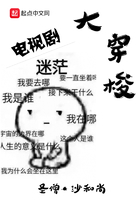For all trades have a mutual dependance one upon the other, and one begets another, and the loss of one frequently loses half the rest. By carrying to other places the commodities brought from India, we every where enlarged our commerce, and brought home a great overbalance, either in foreign goods, or in bullion.
In Holland we exchanged our wrought silks, callicoes, etc. for their spices: by Indian goods, we could purchase, at a better rate in Germany, the linens of Silesia, Saxony and Bohemia. In times of peace we did, and may again traffic with France, for our India goods against the things of luxury, which will always be brought from thence; and thereby we may bring the balance more of our side between us and that kingdom.
And, my lord, there being a peace now in agitation between us and France, the wisdom of the state perhaps may think fit to insist, as an article, that the prohibition of our East-India goods may be taken off in France; and if that can be obtained, it will put the trade of England with that Kingdom upon much a more equal foot.
As to Spain and the Streights, and parts within the Streights, etc., it is apparent that a large share of the bullion returned hither from thence, did proceed from the sale there of calicoes, pepper, and other East-India goods consumed in those parts, and also bought up by the Spaniards for their own, and the consumption of their plantations in America.
It is hoped, my lord, the foregoing arguments have sufficiently proved, that this traffic in general is beneficial to the nation.
I shall now proceed to deliver my opinion concerning the bill for prohibiting the wearing all East-Inda and Persia wrought silks, bengals, and dyed, printed or stained callicoes, which was the 2nd point I proposed to handle.
They who promote this bill, do it, as is presumed, upon the following grounds and reasons:
1st, They believe such a prohibition will advance the consumption of wool, and the woollen manufactures.
2dly, They think it will advance the silk and linen manufactures of England.
3dly, They imagine such a prohibition may be made by act of parliament, without ruin to the traffic in general.
These 3 points, my lord, I shall endeavour to examine and state fairly before your lordship: and I shall discourse of the East-India trade first, as it has relation to the woollen manufacture. 2dly, As it has relation to the silk and linen manufactures. And 3dly, I shall shew how this prohibition will affect the East India trade in general.
And first, as to the woollen manufacture.
Trade is the general concern of this nation, but every distinct trade has a distinct interest. The wisdom of the legislative power consists, in keeping aneven hand to promote all; and chiefly to encourage such trades as encrease the public stock, and add to the kingdom's wealth, considered as a collective body.
Trade is in its nature free, finds it own channel, and best directeth its own course: and all laws to give it rules and directions, and to limit and circumscribe it, may serve the particular ends of private men, but are seldom advantageous to the public.
Governments, in relation to it, are to take a providential care of the whole, but generally to let 2d causes work their own way; and considering all the links and chains, by which they hang together, peradventure it may be affirmed, that, in the main, all traffics whatsoever are beneficial to a country.
They say few laws in a state are an indication of wisdom in a people; but it may be more truly said, that few laws relating to trade are the mark of a nation that thrives by traffic.
Laws to compel the consumption of some commodities, and prohibit the use of others, may do well enough where trade is forced, and only artificial, as in France; but in countries inclined by genius, and adapted to it by situation, such laws are needless, unnatural, and can have no effect conducive to the public good.
I have often wondered upon what grounds the parliament proceeded in the act for burying in woollen: it occasions indeed a consumption of wool, but such a consumption as produces no advantage to the kingdom.
For were it not plainly better, that this wool made into cloth were exported, paid for, and worn by the living abroad, than laid in the earth here at home.
And were it not plainly better, that this wool made into cloth were exported, paid for, and worn by the living abroad, than laid in the earth here at home.
And were it not better, that the common people (who make up the bulk and are the great consumers) should be buried in an old sheer, fit for nothing else, as formerly, than in so much new wool, which is thereby utterly lost.
The natural way of promoting the woollen manufacture, is not to force its consumption at home, but by wholesome laws to contrive, that it may be wrought cheaply in England, which consequently will enable us to command the markets abroad.
The only beneficial way to England of making wool yield a good price, is to have it manufactured cheaply.
No country in Europe manufactures all kind of goods so dearly as this kingdom; and the dutch at this very day buy up our clothes here, which they carry home, and nap and dye so cheaply, that by this means they are able to undersell us in our own native commodity.
The act for maintenance of the poor is the true bane and destruction to all the English manufactures in general. For it apparently encourages sloth and beggary; whereas if the legislative power would make some good provision, that workhouses might in every parish be erected, and the poor, such as are able, compelled to work, so many new hands might thereby be brought in, as would indeed make the English manufactures flourish.
I have reason to think, that the people receiving alms in this kingdom are 1,200,000; if but half could be brought to work, besides their own nourishment, their labour, one with another, might produce to the public, at 20s per head, at least per ann.
600,000 l.















